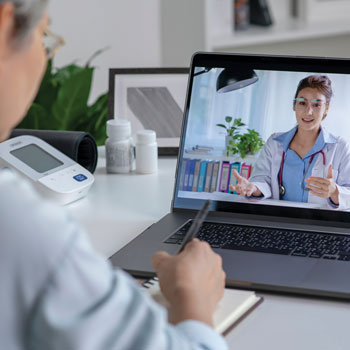Celebrating our differences and diversity
After his first international trip as ACP's President, Dr. Goldman reflects on the goodwill, fellowship, and unity of the family of internal medicine.
One of the great honors of being President of the American College of Physicians is the privilege of representing the College at international meetings of other societies. As I return from my first international trip, attending the Annual Congress of the Philippine College of Physicians, I reflect on the goodwill, fellowship, and unity of the family of internal medicine. I have always believed that there is more that unites us than divides us, and this is reflected by the commonalities and shared experiences that we all have in this great art and practice of being physicians, especially internal medicine specialists. The value of this experience is embracing our diversity and beautiful differences in order to learn from and grow with each other. As I have said before, my Presidency is based on the three core tenets of advocacy, diversity, and humanity. In this column, I will speak of the great value of diversity and how it enriches us as physicians and people.
I must admit to a small amount of trepidation as I embarked upon my journey to the Philippines. This feeling was due to both the 20-hour plane flight and the great unknown of what to expect when entering a foreign country that I had never visited. The risk of deep venous thrombosis aside, my fears and hesitancy were unfounded, as I was treated with such warmth and acceptance from my colleagues across the globe that any concerns were immediately allayed. The conference taught me more than just new considerations for practice. I experienced a sense of community and understanding of other cultures that we would do well to embrace in this country. We should celebrate what makes us unique and special as individuals with a focus on the greater connections of our humanity.
Upon my arrival, I was greeted with the appellation of “Professor,” which is certainly a title I hold, but one that we do not seem to use or really honor in this country. The respect that the community had for physicians was apparent and a stark contrast to what we have been experiencing in the United States in the age of misinformation and disinformation. While I was exploring the city, one of the museum staff overheard my guide address me as “Professor.” Their reaction was one of such respect and awe, asking to shake my hand and take a picture with me, that I realized how different the reaction in the United Sates would be. We have lost that respect for science and knowledge here, and that is truly a disservice to so many who work hard to research, expand knowledge, and improve the lives of others. Moreover, the reaction to a professor from the United States, with such reverence, should remind us as Americans that we have traditionally been respected in the world as the leaders and pinnacle of scientific knowledge and ability. This is an awesome responsibility that we should not take lightly, and we must always act accordingly, as the world is watching.
Additionally, I felt such a sense of happiness and joy throughout the meeting from the attendees, without any animosity or contention. The thirst for knowledge and the desire to improve health care in their country were evident, and many similar concerns and problems we face are also experienced there. Learning from each other and exploring best practices can help all of us to achieve a greater sense of health equity for all communities. The wisest of us know that we may not have the answers individually, but collectively we may achieve greatness, as we are all connected by a universal chain of human love and affection.
It is a lesson that comes down to changing perspectives and shedding our preconceived notions and implicit biases. We should never make assumptions about the lived experience of another, but rather be open to learning and understanding what is true for that community or person. To quote the musical “Hamilton,” as Aaron Burr said, “Talk less, smile more.” Although he intended this advice for more political reasons, I would suggest, in this case, to be attentive to listening to each other and spreading friendship and collegiality.
Finally, the night of fellowship was an event that I would never expect to see in the U.S., as the meeting of thousands of physicians turned into a celebration of singing and dancing, with everyone being excited to come together in the spirit of community and embrace of life. While it seemed that every Filipino in attendance was an accomplished singer, by their own admission, they certainly made me feel comfortable despite my own lack of vocal skills. What I lack in talent I make up for in confidence, enthusiasm, and volume. No one criticized my lack of singing ability but rather embraced the attempt to participate. This is truly a lesson that we could all learn in how we support and assist in lifting each other up and not tearing each other down.
Our great diversity should be our strength and not our weakness, a unifying force that lifts us up, not one that divides us. We should look past perceived differences and embrace our commonalities while celebrating humanity, as that will help us achieve a better understanding of each other and a more harmonious world. Physicians are thought of as leaders, and we should never take that for granted. We should act in ways that bring respect and honor to our profession and our lives.
Diversity helps us recognize what is good in ourselves and shine a light of truth on what we need to see to be better. Diversity is the great flavoring of experience that makes life enjoyable and worthwhile and without it, life would certainly be bland and uninteresting. Diversity is what we should embrace, as it makes us better as physicians, as individuals, and as members of this great tapestry of humanity.





